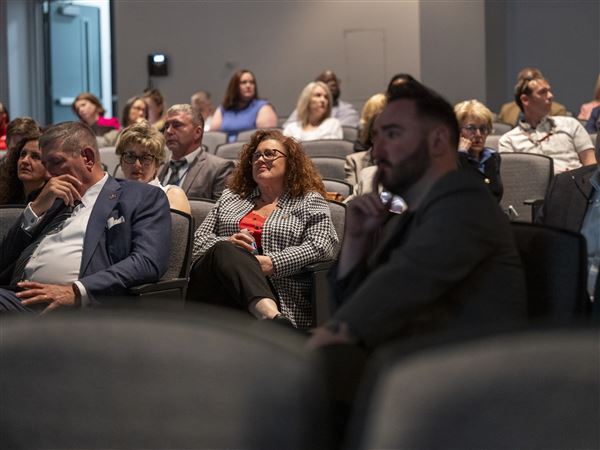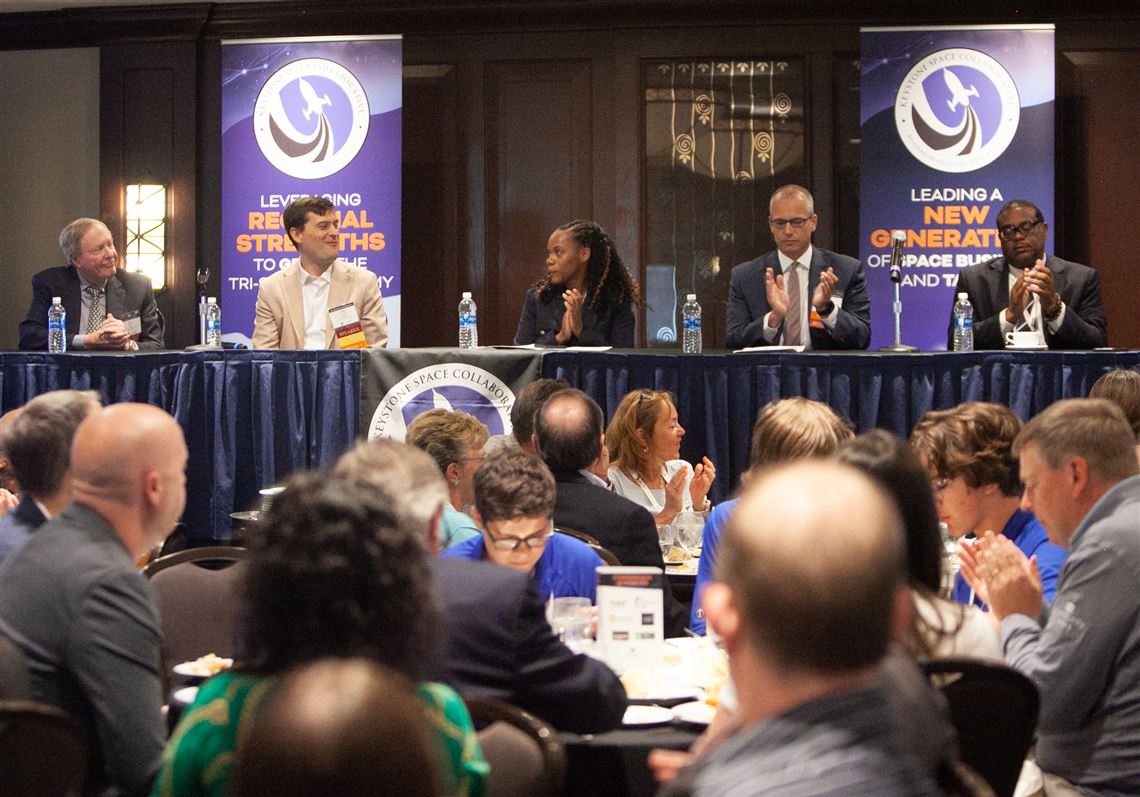A panel of industry executives and government officials, including Pittsburgh Mayor Ed Gainey and U.S. Rep. Summer Lee, unveiled a master planning process Thursday for the Keystone Space and Defense Innovation District, a proposed space and defense industry cluster to be located on the city’s North Side.
Speaking to more than 250 attendees of the Keystone Space Collaborative’s second annual conference at the Sheraton Pittsburgh Hotel at Station Square, Mr. Gainey hailed the proposed district as an ambitious rejuvenation of the area’s economic development.
“I always say our greatest natural resource in the city is called our riverfront,” Mr. Gainey said. “And this is going to be built about eight, nine blocks from the river. It just continues to add vibrancy to our city, to our river life area, and everything else that we're doing.”
Anchored by the Keystone Space Collaborative — which works to expand the space industry’s presence in the tri-state area of Ohio, Pennsylvania and West Virginia — the Space and Defense Innovation District seeks to serve as a unified physical location for major players in an industry that is projected to be valued at $1 trillion by 2030.
According to Justine Kasznica, one of the collaborative’s founding members and board chair, the Keystone Space and Defense Innovation District is intended to be a multiyear project, beginning with a “master visioning process.”
Ongoing developments have already begun, she said, such as the Carnegie Science Center’s acquisition of an 8-acre property that stretches from the science center, through Allegheny Avenue and into Western Avenue.
Ms. Lee, who sits on Congress’s Committee on Science, Space and Technology, said the district would reconnect the Manchester-Chateau neighborhood, a section of the city that has been historically neglected and remains fractured.
She also pointed to Pittsburgh as one of five cities the Biden administration designated as “workforce hubs” last month.
“We have, at the same time, a city, a federal and a county government that is rectifying the wrongs, acknowledging the wrongs of the past and using the resources that we have through our offices to address it instead of ignoring it,” said Ms. Lee, D-Swissvale. “Instead of building upon a rocky foundation, this is the great opportunity to build on a fresh, solid foundation so that we can build something that's sustainable, something that is equitable and ethical, and something that's going to be long-lasting.”
Other panelists at the district’s announcement included Jason Brown, director of the Carnegie Science Center, John Thornton, CEO of Astrobotic, and Steve Winn, CEO of Mirasol Capital, a major financial stakeholder in the project.
Mr. Thornton, of Astrobotic, which moved its headquarters to Pittsburgh’s North Side in 2020, said the company is committed to being “at the crosshairs” of the efforts to redevelop the Manchester-Chateau neighborhood.
“Too often we hear these developments become closed communities and little cloisters and pockets,” Mr. Thornton said. “This is an opportunity to use space as a thing to bring us all together.”
Ms. Kasznica, of the Keystone Collaborative, said the master visioning process already has been funded through a combination of public and private dollars, and he emphasized the continued need for a strong public-private partnership to support the district’s development.
Mr. Gainey called the Space and Defense Innovation District one of the city’s “game rooms,” an extension of one of his frequently used metaphors that the city’s Downtown is akin to its living room.
And like the Golden Triangle — which has seen repeated public safety concerns from business owners in the past six months — he said safety is a priority for the proposed development.
“The more people, the more safe. The more industry, the more safe. The more people going to work, the more safe. And coming out of a pandemic, we need this,” Mr. Gainey said.
Michael Korsh: mkorsh@post-gazette.com, @michael_korsh
First Published: June 1, 2023, 8:57 p.m.
Updated: June 2, 2023, 11:30 a.m.

















